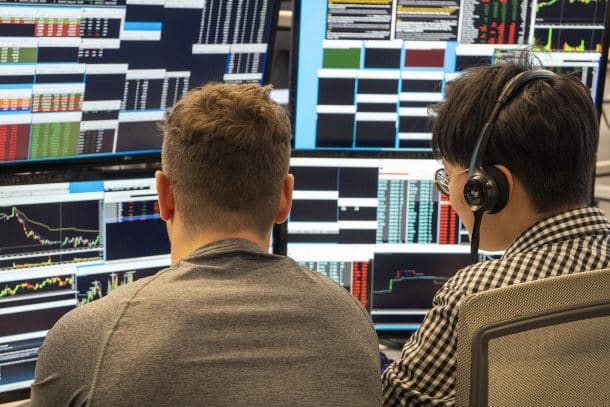*****David Blair, The Crosshairs Trader, is a blogger/trader/educator who does a wonderful job of sharing research on elite performance and how it relates to trading. Below is his latest post for the SMB trading community.***** — Editor’s Note
Ah we have all faced it as traders…the fear of regret. It comes in many forms and a few examples will remind us of just how often it occurs. Let’s say the trader is reviewing two possible stock trades. Both stock A and stock B have a similar set up. The trader chooses stock A. Stock A goes nowhere. In fact, Stock A declines and hits his loss target. Stock B, on the other hand, makes a considerable move without him. The trader regrets choosing stock A over stock B. Instead of making money he loses money. How about this one? The trader analyzes a trading opportunity calculating both profit and loss targets. He decides to risk his money. The stock in question hits his loss target and he exits the trade as planned only to see the stock moving in the previously desired direction to the previously determined profit target without him. He regrets making the decision to exit the trade. And another example much like the last one. The trader determines a profit and loss target for a trade. The trade moves in his desired direction hitting his profit target as he banks his money. Perfect. Or is it? He now watches as the stock he exited continues to move 20% higher without him. He regrets exiting too early.
All of the above examples cause regret about past decisions but it is the fear of regret that can adversely affect future decisions. It’s the decisions about the future, based on the fears generated in the past that can cause the trader to make decisions that he would not otherwise make…decisions that may not be in his best interest. For example, the trader above who leaves 20% profit on the table after exiting at his profit target will recall that last trade when the next trade hits a pre-determined profit target. He decides to hold on longer for greater potential profit only to see the stock reverse hard against him culminating in a break even trade, or even worse, a loss. The fear of regret (based on the past) adversely affected his decision making process (in the present).
While I could write a chapter on the examples of regret; I could write a book on the fear of regret. Basically, the problem stems from our recall of the last experience which can adversely affect our next decision (like the last example). How do we handle this fear? What is the solution to the problem? The following articles may provide us with a few solid answers.
“In investing, the fear of regret can make investors either risk averse or motivate them to take greater risks.” (Investopedia)
“We can become so paralyzed by fear of regret that we fail to act at all; we think any action might be the wrong action.” (Rebecca Fraser-Thill via Working Self)
“We think we are shielding ourselves from the harm of having something so negative come to pass, when in reality we are exaggerating in our eagerness to avoid a regretful result.” (Amy Sundburg via Practical Fear Spirit)
“Contrary to disappointment, which is experienced when a negative outcome happens relative to prior expectations, regret is strongly associated with a feeling of responsibility for the choice that has been made.” (Michenaud and Solnik)
“The fear of regret promotes procrastination.” (Chet Currier via Southeast Missourian)
“We found that people are less likely to invest in a manner in which they had experienced regret, i.e., the experience of regret with a particular type of investment.” (Bailey and Kinerson)
“The emotionally-charged decisions made because of regret lead to worse outcomes for investors, with poor returns resulting from regret-based stock orders.” (Deusker, Pan, Weisbenner, and Wu)
“Different paths to the same outcome can lead to the consideration of very different counterfactual alternatives and thus induce very different levels of regret.” (Gilovich and Medvec)
I trust the above will help us all begin our journey to understand and accept regret’s role in our decision making process; thereby, enhancing our future performance.
David Blair
THE CROSSHAIRS TRADER
www.thecrosshairstrader.com
no relevant postions.


